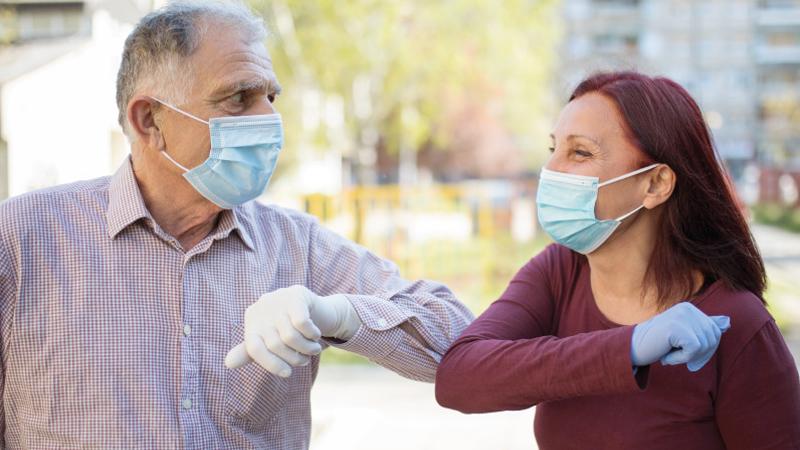
Fears and concerns fuelled by new Covid-19 variants circulating in the country have raised alarm bells among the public demanding to know how they could protect themselves from the adverse impacts of the variants and other respiratory infections likely to occur.
The Sunday Observer sought the help of an experienced Virologist to answer their questions and lay some of their fears at rest. Here, the Head of the Department of Virology and Consultant Medical Virologist Dr. Janaki Abeynayake discusses symptoms, treatment procedures and the need to be extra vigilant of elders who are most at risk.
Excerpts
 Dr. Janaki Abeynayake |
Q. There is much talk today of a re -emergence of the Covid-19 virus in new variants which has raised much concern and fears among the public at large. Compared to other countries in the region where the new variant has spread, how does Sri Lanka rank according to the latest data?
A. So far we have not noticed an increase in SARS CoV-2 cases in Sri Lanka. The new variant has not been detected.
The new variant EG.5.1, nicknamed Eris is spreading across the UK and few isolated cases have been reported in India as well.
Q. Are there different types of variants circulating in the region? Which of them are circulating in Sri Lanka at present?
A. Yes, there are different types of variants circulating in the region. At the moment majority belong to omicron and its sub variants.
Q. Are they islandwide or in specific areas/regions?
A. From the testing we have done, discrepancies in different regions have not been noted.
Q. How do we know if we have caught the virus and become infected? What are the symptoms to look out for?
A. Symptoms such as fever, cough, cold, sore throat and fatigue are suggestive of infection. But needs laboratory testing for confirmation as many respiratory viruses present with such symptoms.
Q. Do the symptoms vary from person to person? If so, why?
A. Yes, a wide range of symptoms can occur from mild to severe infection. The immune status of the patient as well as the genetic variations can account for differences.
Q. Can these symptoms be mistaken for some other diseases such as Eris which I heard are similar to those of other Covid-19 variants?
A. Coronavirus is a respiratory virus so all variants give rise to respiratory symptoms as mentioned above. It is not important to differentiate between variants for acute management.
Q. Are the symptoms of the new variant more/less severe than the Covid -19 virus?
A. There have been no reported data on disease severity.
Q. Gender- wise who are more at risk? Women or men? If so, is there a reason for this difference?
A. There is no gender preference as such for the infection. However, there is evidence that males have a higher death rate compared to females.
Q. Why ?
 A. Maybe this is because these deaths did not get further investigated for other comorbidities as well.
A. Maybe this is because these deaths did not get further investigated for other comorbidities as well.
Q. I was informed that pregnant mothers are also more vulnerable to the infection. Is this true?
A. Yes. Pregnant mothers have a higher risk of being infected and developing complications.
Q. Among those who belong to the high risk groups you just mentioned, who are those most affected by the virus health-wise? Children? Young people? Middle aged? Elderly?
A. Persons of advanced age face higher risks of infection and health complications from the variant due to their underlying health conditions .
Q. So does that mean that an elderly person with pre existing diseases like diabetes, cholesterol and heart disease will be more at risk to infections than a person without these non communicable diseases?
A. Yes, underlying medical conditions may impair the immunity making them more susceptible for infections
Q. Is there an incubation period for the virus to present?
A. Yes. Covid-19 has an incubation period of 5-6 days, going up to 14 days.
Q. Could they infect non infected persons with whom they come into contact during this incubation period ? If so, when?
A. Yes. During this period patients generally do not develop symptoms but they can spread the infection to others 1-2 days before symptom onset. .
Q. Once a person has recovered can he/she become infected by the same variant again? If so, what is the period it takes for the variant to strike again?
A. Infection with the same variant is unlikely as they have developed immunity. It is difficult to give a precise timeframe for the variant to strike again as that would depend on many factors.
Q. If one gets infected several times from the same variants will it result in a progressive loss of immunity and resistance to the disease?
A. As mentioned, repeated infection from the same variant is unlikely. It is difficult to predict whether this effect is lifelong.
Q. I understand there are different stages from mild to moderate to advanced in the progression of the disease. What are the symptoms when a person reaches the most advanced stage?
A. One can have pneumonia, problems with breathing leading to acute respiratory failure; it basically can affect all the organs leading to their shut down. So there can be many different presentations.
Q. Can it lead to death?
A. Yes, as it can cause organ failure
Q. If a patient arrives at a hospital with suspicious symptoms what is the procedure you normally follow?
A. The patient will be assessed in a designated area and based on clinical history, examination and severity the treatment/management will be decided.
Q. How is it treated ? With drugs? Vaccines?
 A. There are drugs that are now available that if taken early can prevent severe disease. There are also drugs that are reserved for severe disease. Vaccines do not have any place in the acute management of Covid-19. However, it is vital for the prevention of severe disease or death from Covid-19.
A. There are drugs that are now available that if taken early can prevent severe disease. There are also drugs that are reserved for severe disease. Vaccines do not have any place in the acute management of Covid-19. However, it is vital for the prevention of severe disease or death from Covid-19.
Q. So where are Covid-19 variant patients usually treated? Do they require a hospital setting?
A. This will depend on the severity of symptoms. In cases where the symptoms are severe, needing oxygen or breathing support or having other medical problems, hospital admission would be warranted.
Q. Since the number of special wards set aside for infectious disease including Covid-19 are still very limited in Sri Lanka, isn’t there a chance that the patient could also infect other non infected patients through cross infection?
A. The risk is present but hospitals have taken infection control and prevention strategies that will minimise this risk.
Q. If someone is too old or feeble to enter a hospital can he /she be treated at home?
A. Age would not under any circumstance be a factor that would prevent a patient from entering a hospital. All hospital staff ensures equitable health care is provided. However, if it is the preference of the individual to stay at home and receive care, then that would depend on the severity of symptoms. If support is needed with breathing or oxygen is necessary then, unfortunately that would not be possible to arrange through the national sector hospitals.
Q. Are there guidelines for looking after a patient in a non medical home environment? I understand the Ministry of Health has prepared some guidelines
A. Yes, The Ministry of Health has prepared and issued guidelines for managing patients in their homes. However, this was active when the pandemic was in full swing and the health care facilities were overwhelmed with patients.
Q. As a virologist attached to the Medical Research Institute, briefly tell us what the role of the MRI in Sri Lanka is with regard to dealing with the Covid- 19 new variant?
A. Medical Research Institute is in the forefront of detecting Covid-19 new variants. We have established new viral genome analysis diagnostic services that would enable us to detect the presence of new variants as early as possible.
These results are shared with the Ministry of Health, Epidemiological Unit as well as globally so that timely action can be taken when needed. So far, it has not been detected in Sri Lanka
Q. Do you also test for other respiratory diseases like influenza etc? If so, mention a few?
A. We test for 18 different viruses that can cause a range of conditions from common cold to severe pneumonia. Some of these include: Influenza virus, respiratory syncytial virus, parainfluenza virus, rhinovirus to name a few. Not just these viruses but their subtypes can also be detected.
Q. How do you ensure there is no mix up in the samples collected of patients with various respiratory diseases including the new corona variant, since they are collected from different parts of the island?
A. There is an established process and standard operating procedures have been designed from sample receipt, through to report issuing. There is an effective quality management system that ensures there are minimal errors in the process. We have a high quality laboratory information system that is effective at minimising errors of such nature.
Q. How are specimens stored from the original site to the MRI lab in Borella without becoming contaminated?
A. Samples are packaged and transported according to International standards and guidelines. The MRI has developed guidelines for this process and shared with all stakeholders. These instructions are easily accessible via the official MRI website.
Q. Gaps you see in your field of work which you would like to close? If you had a choice, how would you set about doing that?
A. Two main areas that require further attention are inaccessibility of high quality testing to every citizen of the country.
This is in part due to the other main concern which is disruption of continuous testing due to limited reagents, resources and supplies as a result of funding constraints. How to address that? I do not think this is the forum to discuss tha!
Q. Young people have been cited as being most vulnerable to Covid-19 due to their impulsive and reckless lifestyles. Has the Sri Lanka Association of Virologists initiated any programmes especially directed to advise, educate and counsel them?
A. I have to disagree with this, Young people with their resilient immune system are better able to tolerate Covid-19 and its variants. It is our elderly population and those with poorly controlled chronic illness that are most vulnerable.
Q. Do you have a message for our readers on how to minimise risks of being infected by the new Covid-19 variants?
A. Continue to wear masks if you are at risk for severe disease. Socially distance yourself from people outside of your household. Stay away from large gatherings. Clean your hands regularly. Cover your mouth and nose with your bent elbow or a tissue when you cough or sneeze.
Q. If any of our readers wishes to obtain more information on the new Covid- 19 variant how can they reach you? Does the MRI have a hotline to contact?
A. Sorry, we only have a general line.
